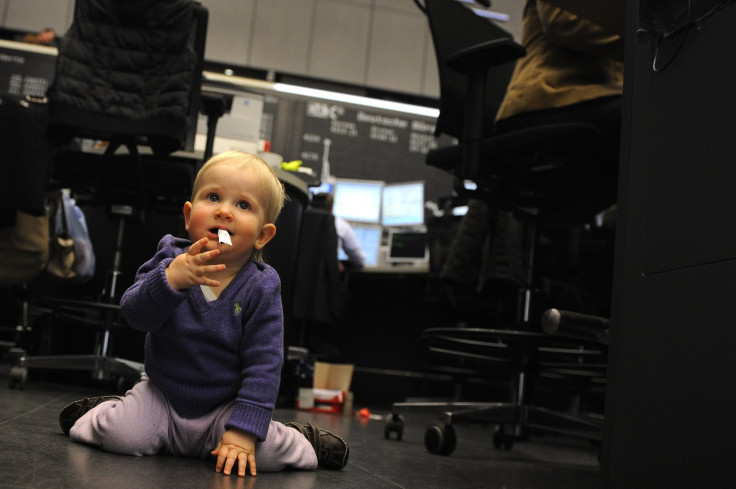Spanking Children In America: Corporal Punishment Forbidden In Many Countries, But US Ban Is Unlikely

When Walter Duncan was a kid, his dad spanked him exactly three times: once for running out into the street, once for being accused of bullying in school and once for stealing $2 to buy candy. But Duncan doesn't have plans to ever spank his 1-year-old son, Carter. He's strongly opposed to corporal punishment.
"I don't want to hurt my child," said Duncan, a co-founder of Boston startup Quick Key Mobile. "I want to nurture my child and help him grow. I want my child to be an adult who solves problems not by using physical violence."
Because he lives in Massachusetts, Duncan is afforded the right to make that choice. But if he lived in other parts of the U.S., he could be prevented from spanking Carter: Laws and standards can vary widely from state to state, and even community to community. Globally, 44 nations forbid parents from smacking kids, but the United States isn't likely to join them anytime soon. Experts say that although societal views of corporal punishment are shifting, the practice is too far ingrained in American culture to be totally outlawed anytime soon.
"We're a violent nation. We believe that physical force is the way to get things done," said Murray Straus, co-director of the Family Research Laboratory at the University of New Hampshire. "So it's going to be awhile."
Questions arose about the U.S.'s inconsistent stance on spanking this week after the Council of Europe reprimanded France for not expressly banning it as agreed in the European Social Charter. Child protection charity Approach complained to the international organization that France and six other nations were in violation of the 1961 treaty. Decisions on Belgium, Cyprus, the Czech Republic, Ireland, Italy and Slovenia are forthcoming, according to Agence France-Presse.
Studies have shown that spanking -- often called "smacking" abroad -- can reduce gray matter in the brain, increase aggression and make kids more susceptible to depression, but in the U.S. a nationwide ban is far off. Nineteen states still allow corporal punishment in schools, and rules on home conduct are much looser, said Victor Vieth, senior director and founder of the Gundersen National Child Protection Training Center in Minnesota. Most parents today spank their kids, he said, though the situation seems less severe than in the past.
In general, parents only need to prove their discipline methods are reasonable -- the definition of which varies depending on the community. That's why Vieth said he doesn't see the U.S. forbidding spanking in the near future. For example, it's part of black culture and some conservative Protestant teachings, he said, especially in the South. "If you're growing up in that culture and that's your belief system, it's very hard to give up," Vieth added.
Although the practice may be concentrated in certain areas, spanking is a relatively widespread custom. A 2013 Harris poll found that 86 percent of Americans said they'd been spanked as a child, and 81 percent said it was sometimes appropriate to do to their own kids. This played a part last year in the high-profile child abuse case of pro football player Adrian Peterson, who was indicted on charges he whipped his 4-year-old son with a tree branch. Peterson argued it was part of his family tradition, saying in a statement that "I have always believed that the way my parents disciplined me has a great deal to do with the success I have enjoyed as a man."
Jordan Riak, executive director of Parents and Teachers Against Violence in Education, a group based in California, said people like Peterson defend spanking because they feel guilty. They're embarrassed about how they were treated and place blame for their actions elsewhere.
As long as that mindset continues, so will spanking, said Straus, of the University of New Hampshire. Kids learn from their parents that violence is a way to resolve some situations. Americans have been perpetuating the notion for centuries, Straus said, since explorers had to use force to settle the frontier.
That's why Straus said he thinks legislation to outlaw spanking has mostly failed. Proposals by Democratic groups in South Dakota, Maryland and California were all shot down last year, the New York Post reported. Even potential Republican presidential candidate Jeb Bush supported the practice when he ran for Florida governor in 1994.
The most successful attempt to forbid spanking in the U.S. came in Delaware in 2012. Then-state Attorney General Beau Biden -- a son of Vice President Joe Biden -- supported a bill there that sought to criminalize any punishment of kids that causes physical injury or pain. That bill became state law. (The younger Biden left office Jan. 6.)
Progress like that is ramping up, Riak said, because people are changing their views of spanking. More pediatricians are addressing smacking with their patients' parents because the research backs them up. Neighbors who witness abuse are becoming more likely to report it. Even though a ban on spanking is a remote possibility, cultural happenings like the NBC television series "The Slap," Peterson's case and the France reprimand keep people discussing the topic.
"The reform movement is moving ahead slowly but surely -- not fast enough for my satisfaction," Riak said. "If a child is going to be smacked tomorrow, for that child the reform took place a day too late."
© Copyright IBTimes 2025. All rights reserved.






















